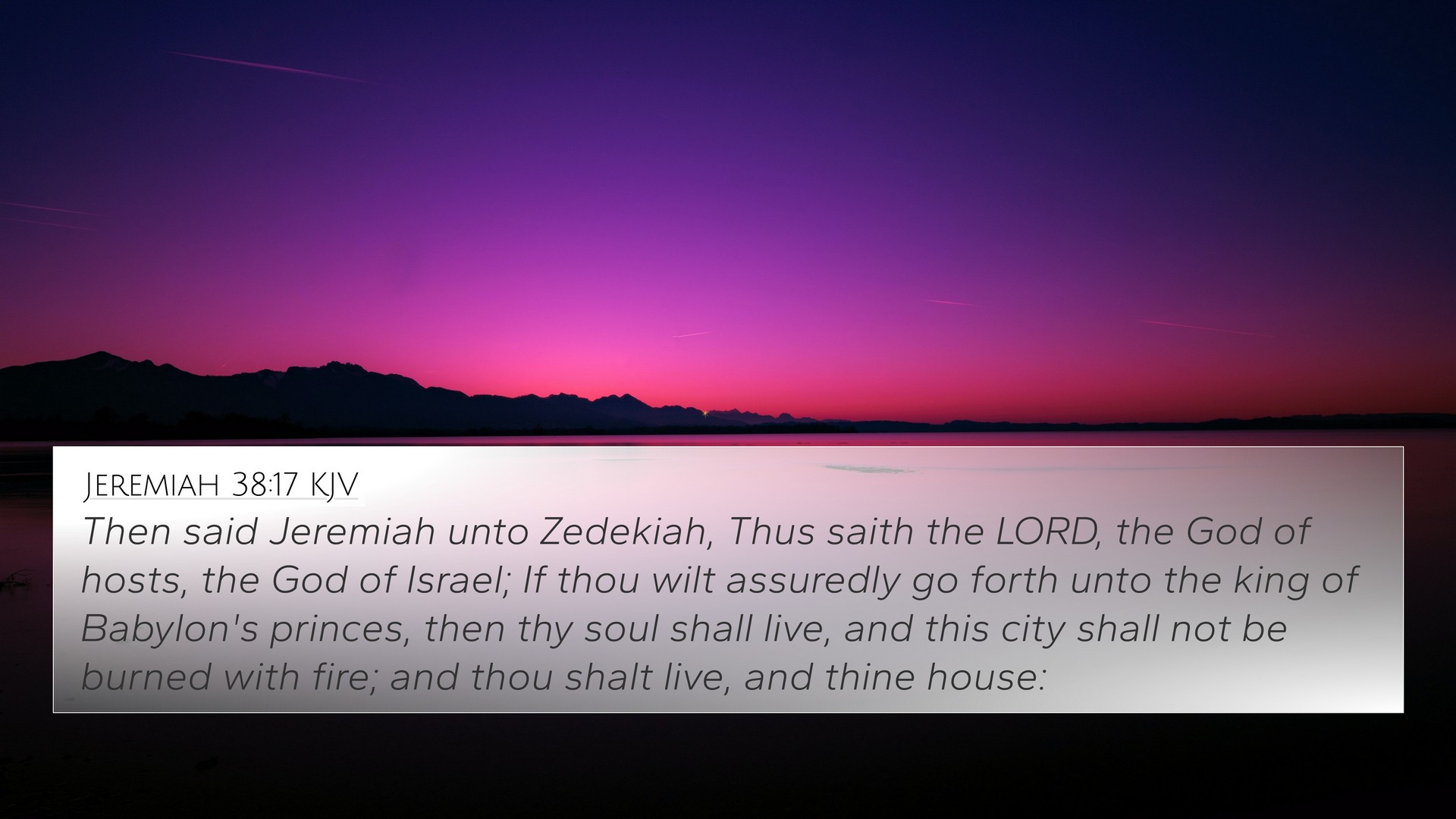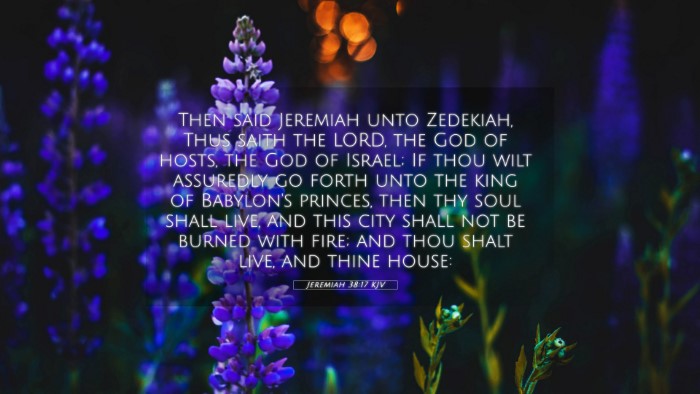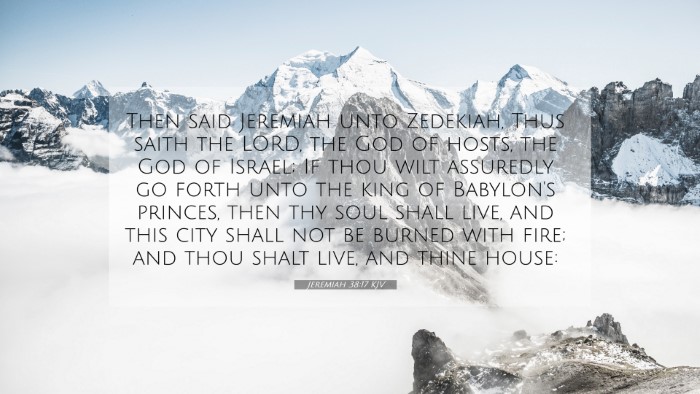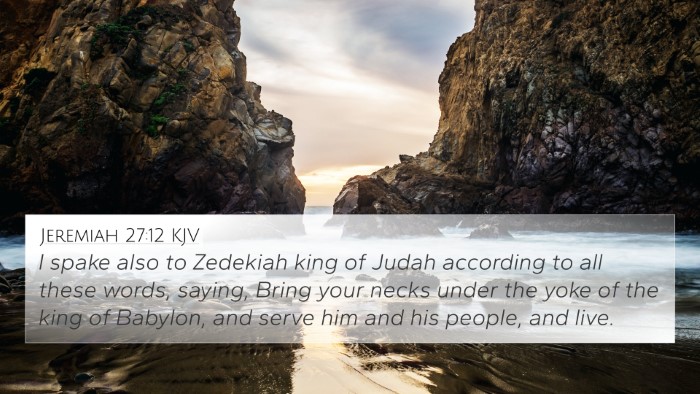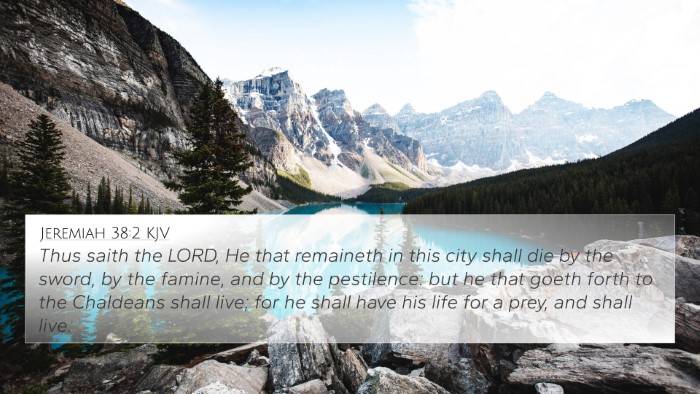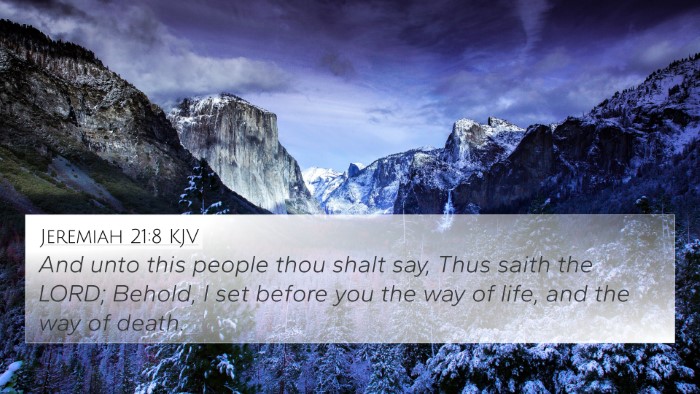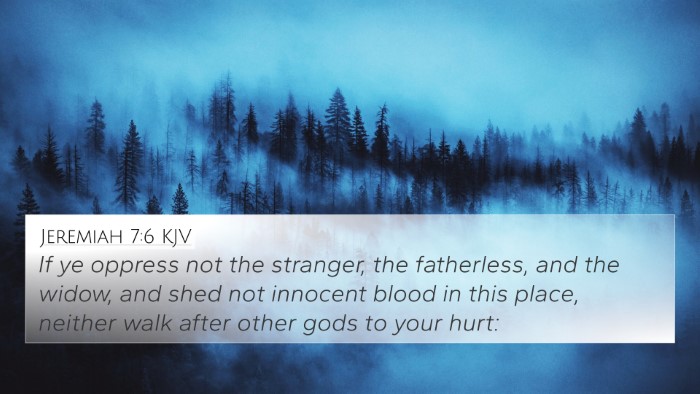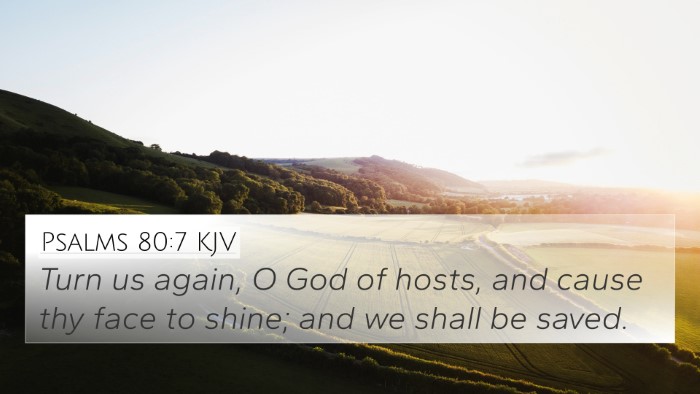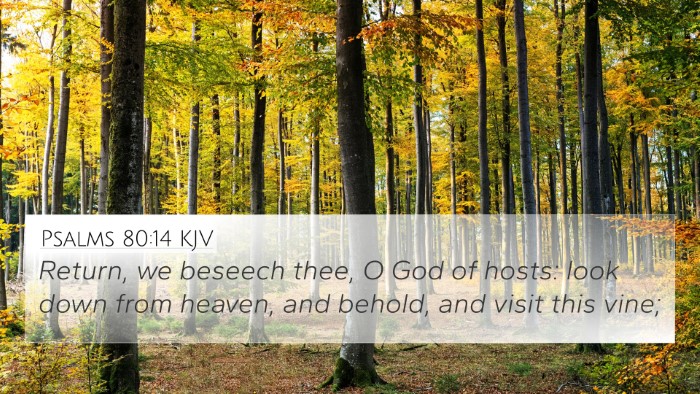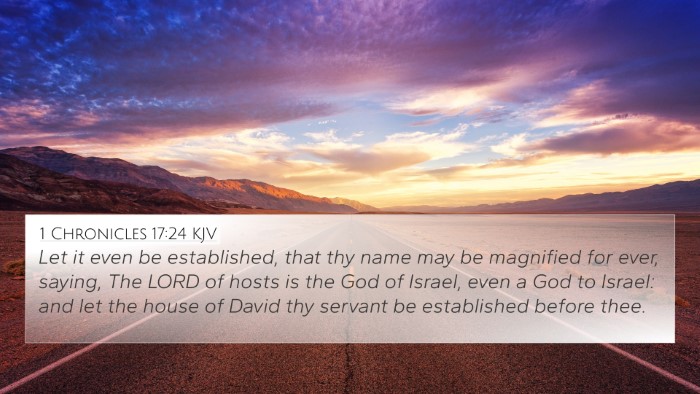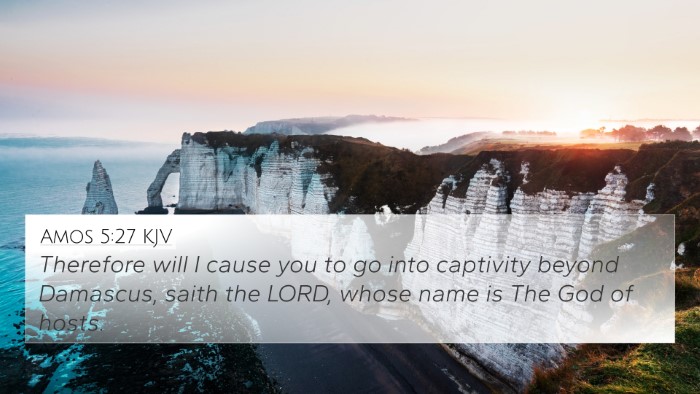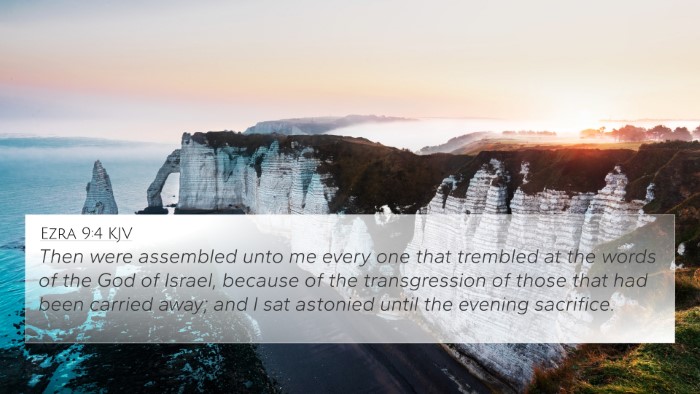Understanding Jeremiah 38:17
Jeremiah 38:17 states: "Then Jeremiah said to Zedekiah, 'Thus says the Lord, the God of hosts, the God of Israel: If you will surrender to the officials of the king of Babylon, then your life shall be spared, and this city shall not be burned with fire, and you and your house shall live.'
Verse Summary and Interpretation
In this verse, the prophet Jeremiah delivers a sobering message to King Zedekiah during the Babylonian siege of Jerusalem. The essence of the message encourages Zedekiah to surrender in order to save himself and his city. The verse encapsulates themes of obedience, divine guidance, and the dire circumstances faced by the people of Judah.
Thematic Elements
This passage reflects several significant themes relevant to both the historical context and contemporary applications:
- Divine Intervention: God's sovereignty is evident as He directs Jeremiah to communicate critical choices to Zedekiah.
- Consequences of Disobedience: The importance of aligning with God's will is highlighted, as failure to surrender results in destruction.
- Hope Amid Despair: Even in a bleak situation, God provides a path to preservation and life, showcasing His mercy.
Cross-References and Connections
Jeremiah 38:17 has several Biblical cross-references, illustrating broader connections throughout Scripture. Here are some notable verses relating to this passage:
- Jeremiah 21:9: "He who stays in this city shall die by the sword, by famine, and by pestilence, but he who goes out and surrenders to the Chaldeans who are besieging you shall live." This echoes the surrender theme.
- Jeremiah 39:18: "For I will surely save you, and you shall not fall by the sword, but you shall have your life as a prize of war, because you have put your trust in me." This reinforces God's promise of protection for those who surrender.
- Isaiah 39:6-7: The prophecy regarding captivity, demonstrating the inevitable consequences of rebellion against God.
- Ezekiel 18:30: "Therefore I will judge you, O house of Israel, every one according to his ways, declares the Lord God. Repent and turn from all your offenses, so sin will not be your downfall." Encouragement to repent relates directly to Zedekiah's choice.
- Matthew 10:39: "Whoever finds their life will lose it, and whoever loses their life for my sake will find it." A New Testament perspective on surrender relating to spiritual preservation.
- Hebrews 12:25: "See that you do not refuse him who is speaking. For if they did not escape when they refused him who warned them on earth, much less will we escape if we reject him who warns from heaven." Reflects the seriousness of rejecting God's directives.
- Acts 27:31: The idea of physical salvation through obedience to God's commands is paralleled in this New Testament account.
- Luke 14:31-32: Jesus discusses counting the cost before engaging in conflict, reminiscent of Zedekiah's situation.
- Romans 12:1-2: Calls for a living sacrifice, connecting themes of surrender and obedience to God’s will.
Conclusion
Jeremiah 38:17 serves not only as a historical account but also as a timeless reminder of the principles of surrender and faith. The verse encourages individuals to seek the guidance of God and to understand the consequences of their choices, particularly in times of crisis. Through cross-referencing and interconnecting Biblical texts, a deeper understanding of the moral and spiritual implications of surrendering to God’s will can be unearthed, allowing for a comprehensive analysis of how these themes resonate throughout the entirety of scripture.
Tools for Further Study
For those wishing to delve deeper into cross-referencing Biblical texts, various tools can be utilized:
- Bible Concordance: A comprehensive index of Biblical words and themes that aids in locatingScriptural references.
- Bible Cross-Reference Guide: Resources identifying links between verses and themes across both Testaments.
- Bible Chain References: A method of linking passages together based on thematic similarity or context.
- Cross-Reference Bible Study Methods: Techniques for linking Bible scriptures to enhance understanding.
- Bible Reference Resources: Materials and guides for preaching and teaching, revolving around inter-Biblical dialogue.
